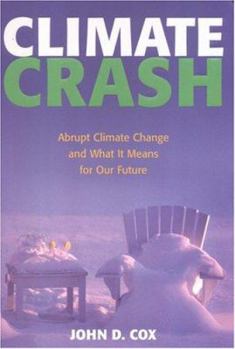Climate Crash: Abrupt Climate Change and What It Means for Our Future
Select Format
Select Condition 
Book Overview
As scientists carefully search for clues in the sun and storm patterns from our distant past, they are gradually writing a new history of Earth's climate. Layers extracted from cores drilled into glaciers and ice sheets, sediments collected from the shores of lakes and oceans, and growth rings exposed in ancient corals and trees all tell the same surprising story.
It is now apparent that alterations in our climate can happen quickly and dramatically. Physical evidence reveals that centuries of slow, creeping climate variations have actually been punctuated by far more rapid changes. While this new paradigm represents a significant shift in our picture of Earth's past, the real question is what it means for our future.
Many researchers are now quietly abandoning the traditional vision of a long, slow waltz of slumbering ice ages and more temperate periods of interglacial warming. While they've long recognized the threats posed by global warming, they must now consider that the natural behavior of our climate is perhaps a greater threat than we'd imagined. And though there is no need for immediate alarm, the fact that changes in our climate can happen much more quickly than we'd originally thought--perhaps in the course of a human lifetime--makes it clear that science has a lot of questions to answer in this area. What are the mechanisms for triggering a significant climate change? In what ways should we expect this change to manifest itself? When will it likely happen? Climate Crash seeks to answer these questions, breaking the story of rapid climate change to a general public that is already intensely curious about what science has to say on the topic.





